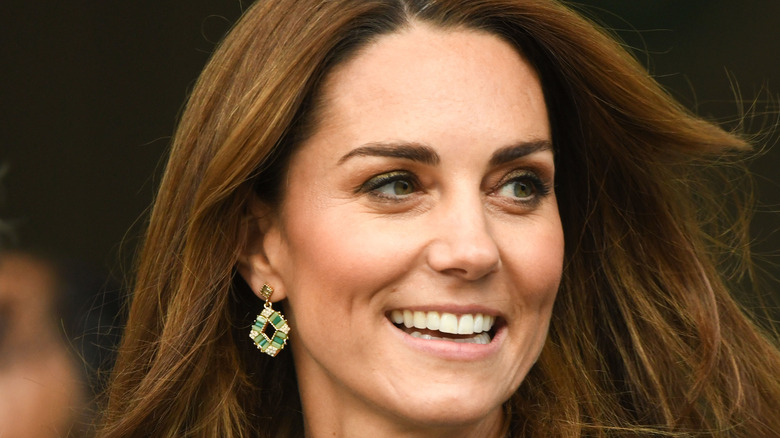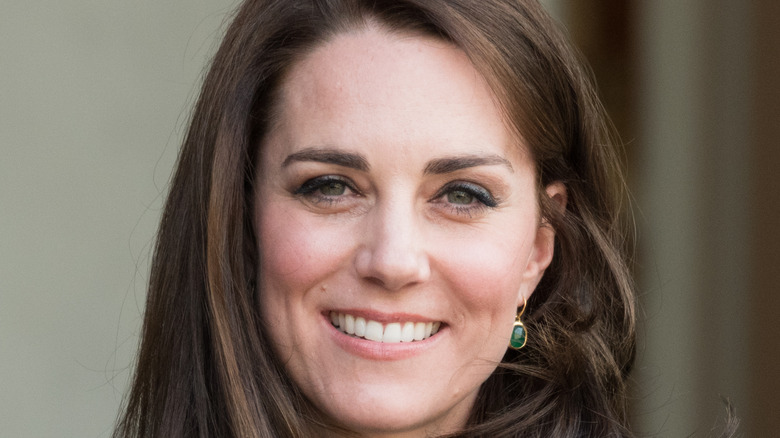The Infamous Fad Diet People Credit For Kate Middleton's Royal Wedding Transformation
Duchess of Cambridge Kate Middleton is accustomed to receiving plenty of media attention as a member of the royal family. She's known in particular for favoring healthy meals instead of junk food, something that has been highlighted in news articles many times. Even as a kid, Middleton would turn to olives instead of candy. And, interestingly, her daughter Charlotte seem to love feasting on olives, too.
Also according to the article, Middleton is a big fan of green juices, which she adds to her daily diet. She makes it a point to start her day with a glass of juice that has wholesome ingredients like kale, matcha, spinach, romaine, blueberries, and more. No wonder she always looks so stunning with all those nutrients!
Some may also recall that Middleton managed to transform herself before her lavish 2011 wedding to Prince William. According to several media outlets like Showbiz Cheat Sheet, the bride-to-be experimented with a specific diet before the big day to achieve her goals.
It's called the Dukan diet and was developed by a French doctor
As reported by Closer, the eating plan is called the Dukan diet and was created by French doctor and nutritionist Pierre Dukan in the 1970s, only to be re-popularized thanks to Middleton 10 years ago. ShowBiz Cheat Sheet says there are just 100 foods allowed in this eating plan, and there are four stages that vary in amount of weeks, depending on how much weight you want to lose. They include the Attack Phase, Cruise Phase, Consolidation Phase and Stabilization Phase. Initially, you strictly stick to food items that are high in protein such as fish, poultry, and lean meat in order to keep feeling satiated — and avoid everything else. Next, you can add vegetables back in, along with the high protein.
The third phase lets you add a bit of carbs to your meals. Basically, a couple of slices of bread every day and one serving of fruit. You may also add a bit of cheese to your eating plan at this stage. Plus, two treat meals are included during the week at this point, among other things. The final phase of this eating plan is more or less for weight maintenance and allows a return to original eating habits with a focus on healthy foods and a protein-heavy day at least once every week, as per Dukan. There are also guidelines for exercise, including an emphasis on walking.
It's important to mention that this eating plan is highly restrictive and may not be the right choice for everyone as seen in this Women's Health article.
If you are struggling with an eating disorder, or know someone who is, help is available. Visit the National Eating Disorders Association website or contact NEDA's Live Helpline at 1-800-931-2237. You can also receive 24/7 Crisis Support via text (send NEDA to 741-741).

